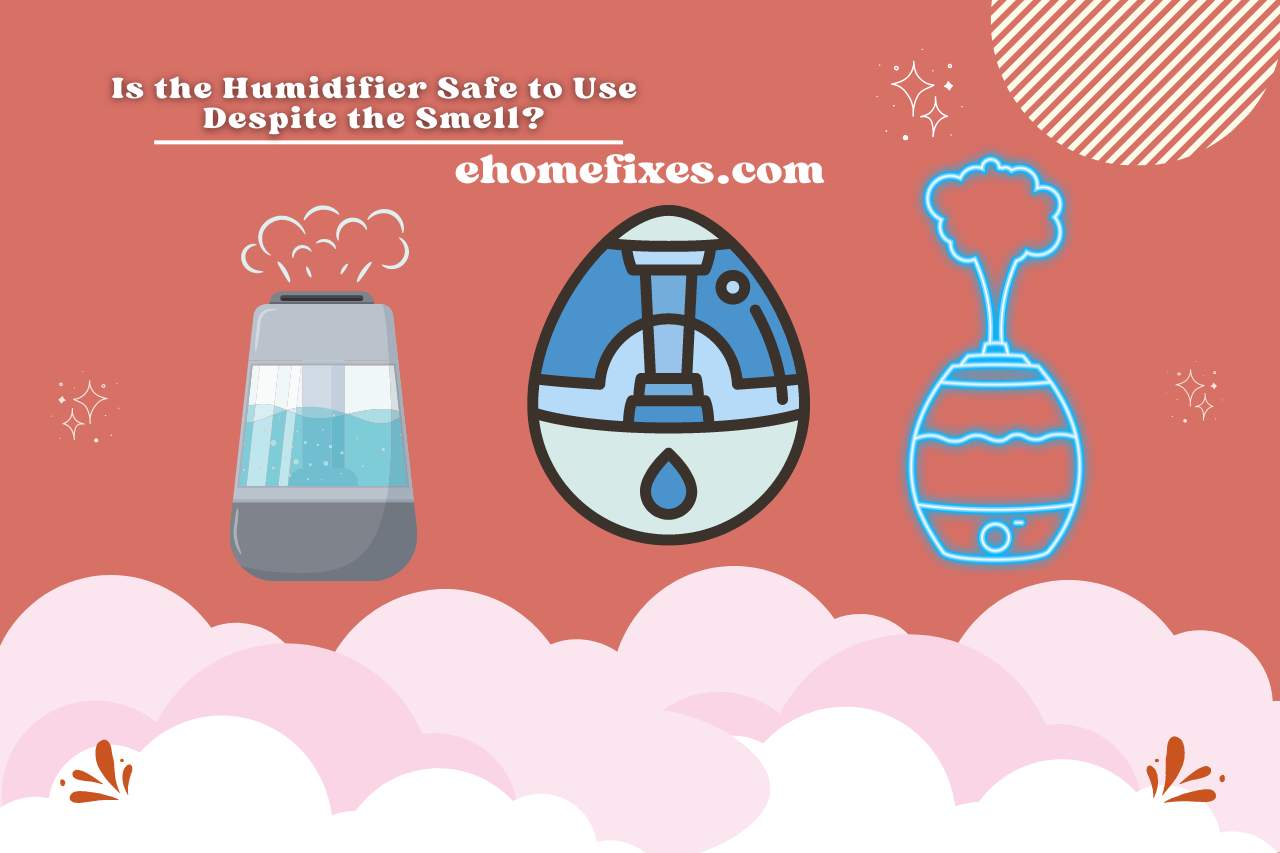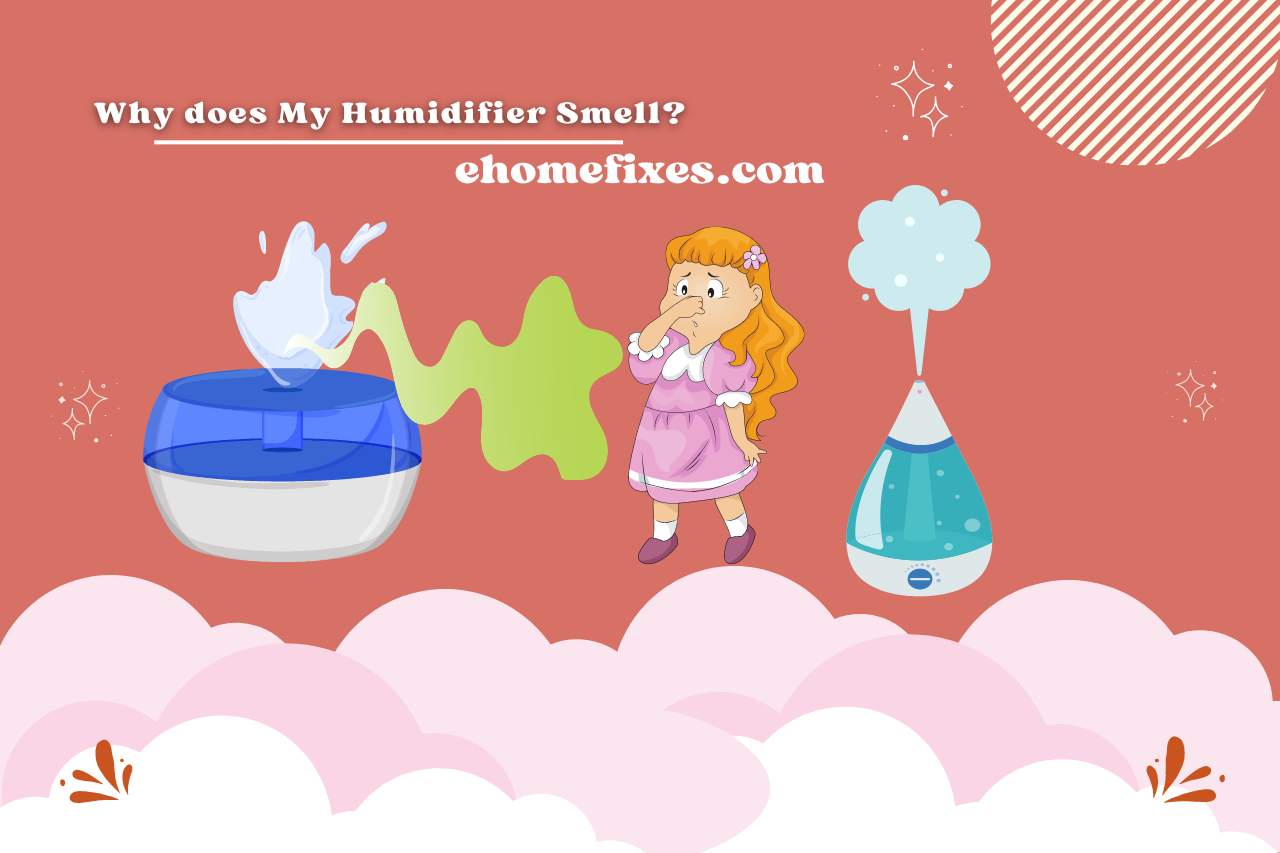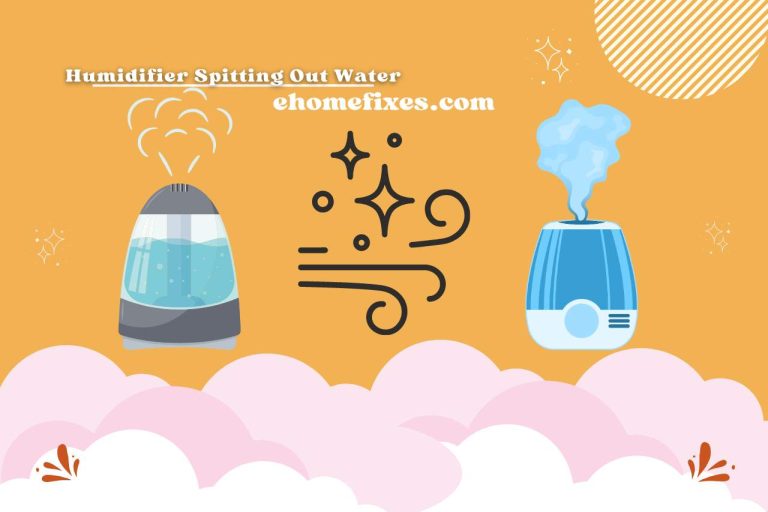Why does My Humidifier Smell? Unraveling the Mystery!
Are you sick of converting your warm haven into an unwelcoming place when you turn on your humidifier because of foul odors? You’ve come to the right place if you’ve ever asked, “Why does my humidifier smell?” this article is committed to illuminating this perplexing situation and giving you the information and strategies, you need to eliminate those unwelcome smells.
Humidifiers improve comfort and support better respiratory health while improving indoor air quality. However, occasionally they might develop into a breeding ground for offensive odors, which reduces the advantages they provide. Understanding the underlying causes of odor problems, such as musty smells and sour aromas, is essential to creating a reviving and stimulating environment.
Are Humidifiers Supposed to have a Smell?
A humidifier can have a tiny, transient odor when using it. After a few uses, this should stop happening because the heating of materials like the water tank or internal parts frequently causes it.
If the water in the humidifier’s reservoir is left standing for a long time, it may start to smell musty or stale.
This can happen if the humidifier is not cleaned and dried correctly in between uses or unused for a time.
If a humidifier isn’t cleaned frequently, the damp environment can encourage the growth of bacteria, mold, and other germs. This may cause unpleasant smells to be discharged into the air when the humidifier runs.
The humidifier’s ability to produce a smell can also depend on the water quality. Water containing impurities can produce scents, but hard water with a high mineral concentration may produce a mineral-like smell.
The humidifier’s filters and wicks, which collect dirt and pollutants, can produce unpleasant odors if not routinely cleaned or replaced. It’s critical to take immediate action if you notice a lingering or overpowering fragrance from your humidifier.
Regular cleaning and maintenance are essential to maintain the humidifier functioning effectively and odor-free and to stop germs and mold from growing.
Why does My Humidifier Smell?
- Without adequate cleaning, water in the humidifier’s reservoir or other parts becomes a haven for bacteria, mold, and other microorganisms. These offensive-smelling particles are released into the air when the humidifier runs, giving off an unpleasant odor.
- Humidifiers that retain pollutants from the water using filters or wicks might get dirty over time. These filters or wicks can retain germs and mold, producing unpleasant odors if not routinely cleaned or changed.
- A musty or stale stench may develop if water stands still in the humidifier, especially when not used.
- High mineral content hard water can leave stains and have a mineral-like odor. Utilizing filtered, clean water might lessen this problem.
- For a humidifier to work correctly and smell-free, routine maintenance is essential. Unpleasant odors might result from neglecting regular cleaning, descaling, and filter replacement.
- Certain humidifier types may have specific qualities (such as warm mist, evaporative, and ultrasonic) that cause scents. For instance, the heating element in warm mist humidifiers occasionally produces a subtle metallic odor.
How to Get Rid of Odor in a Humidifier?
- Unplug the humidifier from the power source to maintain safety before beginning any cleaning procedures.
- Remove the humidifier’s water reservoir with care. Remove any leftover water and thoroughly cleanse the reservoir with fresh water. Use a soft brush or sponge to clean the reservoir’s inside surfaces.
- Use a brush or sponge to give your humidifier’s separate base or water chamber a thorough cleaning if it has one. Any cracks or challenging-to-reach places should be carefully observed.
- Following the manufacturer’s instructions, remove any filters or wicks used by your humidifier. As advised, clean them or change them. Reusable filters should be carefully washed in clean water and thoroughly dried before reinserting.
- The vinegar will help eliminate any bacterial growth and mineral deposits.
- After soaking, use a soft brush or sponge to scrape the internal surfaces of the water reservoir and base to remove any buildup or residue that may have remained.
- To remove any vinegar residue and loose debris, empty the vinegar solution and thoroughly rinse the humidifier’s parts in clean water.
- You can use a descaling solution made exclusively for humidifiers to remove mineral deposits or scale from your humidifier. If there are any descaling instructions, adhere to them.
- Make sure the humidifier is thoroughly dry after cleaning it before reassembling it. Use a fresh cloth or sufficiently let the parts air dry before using them.
- Use clean, filtered water in your humidifier to avoid unwanted odors and mineral buildup. To reduce mineral deposits, distilled or demineralized water is a great option.
- Maintaining your humidifier regularly will keep it odor-free. At least once a week, clean the humidifier and replace the wicks or filters as the manufacturer directs.

Is the Humidifier Safe to Use Despite the Smell?
A humidifier’s primary functions are to increase interior comfort and support better respiratory health. An offensive odor can negate the advantages of utilizing a humidifier, which may even make the surroundings less comfortable.
Strong odors coming from a humidifier occasionally could signal that something is wrong electrically. The issue must be fixed immediately to guarantee the humidifier operates safely.
How to Make a Humidifier Smell Good?
- Adding a few drops of essential oils to the water in your humidifier is one well-liked technique. Use essential oils gently to prevent the air from becoming overwhelming.
- Some humidifiers have scented discs or tablets that can be dropped into the water tank. These are created specifically to provide a pleasing scent when the humidifier runs. Observe the manufacturer’s instructions for use once again.
- Slices of citrus fruits, such as lemons or oranges, or herbal components, such as mint or rosemary, can be added to water to add a natural and energizing aroma to the air.
How Often should I Clean My Humidifier?
- Ultrasonic humidifiers are prone to mineral buildup because they employ a nebulizer to produce a thin mist. Cleaning them every two to three days is ideal, mainly if you use hard water. Regular cleaning keeps the appliance in top working condition and helps avoid white dust.
- A wick filter on these humidifiers captures minerals and other pollutants in the water. Depending on usage, it’s best to clean the humidifier and change the filter every one to two weeks. The filter must be regularly replaced to prevent the growth of bacteria or mold.
Why does My Humidifier Smell Like Chemicals?
The residue left behind by chemical cleaning agents that you used to clean your humidifier recently may be the source of the chemical odor.
After using any cleaning products, always thoroughly rinse the humidifier’s parts with clean water.
Some individuals employ water treatment solutions or additions to stop mineral accumulation or bacterial growth in the humidifier.
These items could give up a chemical odor in the water if they contain chemicals or if you use them excessively.
Unpleasant odors that may smell chemical-like can be released by mold or mildew growth inside the humidifier. This may occur if the humidifier is not entirely and routinely cleaned.
Can you Put Essential Oils in a Humidifier?
You can add essential oils to a humidifier, but proceed cautiously and according to the manufacturer’s instructions. It’s important to confirm that your particular model is compatible with essential oils because not all humidifiers are made to function with them.
Some humidifiers have a chamber or tray for aromatherapy where you can add a few drops of essential oils. This enables safe dispersion and keeps the oils from directly touching the water reservoir.
You May Also Like
- Can I Use Vicks Humidifier without Vapopads? (No VapoPads? No Problem!)
- Does a Humidifier Increase Oxygen? Humidifiers and Air Quality!
- Can a Humidifier Set Off a Smoke Alarm? Debunking the Myth!
- How Long does It Take for a Humidifier to Work? Humidifier Efficiency!
- Humidifier Spitting Out Water – Here’s What You Can Do!







